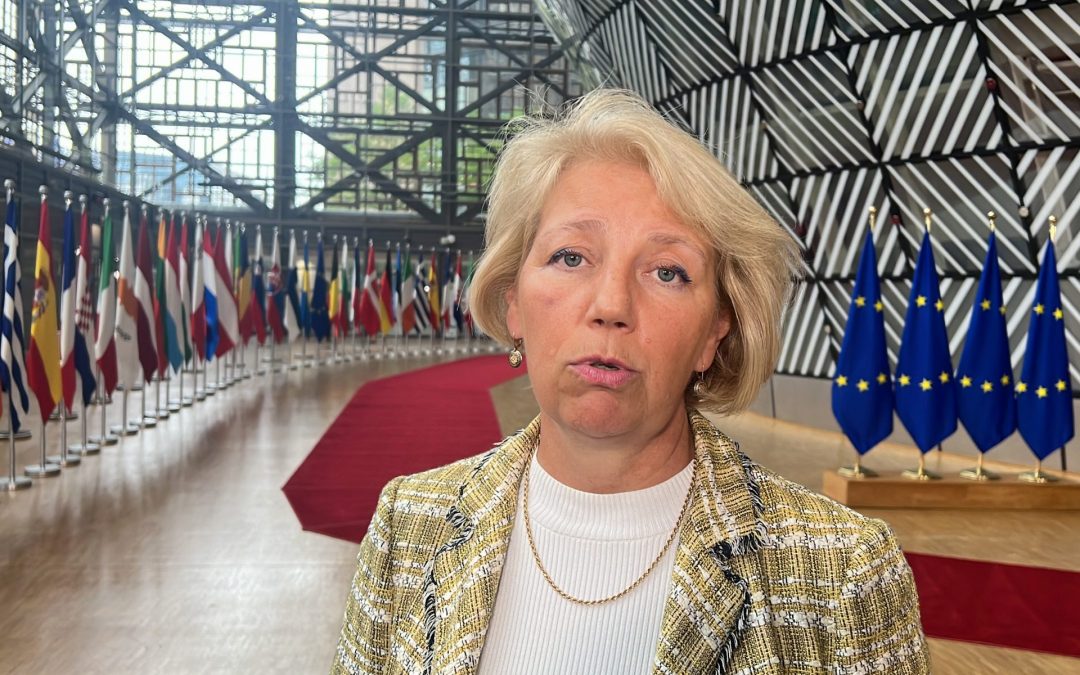BRUSSELS – Croatia strongly supports the countries of the Western Balkans on their path towards the EU, but based on merit, which means, among other things, they must adhere to the principles of good neighborly relations, said on Tuesday in Brussels the State Secretary in the Ministry of Foreign Affairs, Andreja Metelko Zgombić.
“Croatia strongly supports the enlargement process based on merit,” Metelko Zgombić said after the conclusion of the meeting of the EU member states’ ministers for European affairs.
The General Affairs Council, composed of the ministers of member states responsible for European affairs, held its first formal meeting on Tuesday under the Hungarian presidency.
The meeting discussed the rule of law in member states, with ministers from four Western Balkan countries that have already opened accession negotiations – Albania, Montenegro, North Macedonia, and Serbia – participating equally in the discussion for the first time.
The ministers did not discuss specific advancements that these four countries could make by the end of the year, as these discussions are held at lower levels in the EU Council.
Hungary, as the presiding country, strongly advocates for the progress of Western Balkan countries towards EU membership and strives to organize intergovernmental accession conferences by the end of this year so that some of these countries can open or close parts of the negotiation chapters. A consensus of all member states is needed for this.
When asked about the prospects of this happening, Metelko Zgombić said that Croatia believes Albania and North Macedonia should be allowed to take a step forward and open some chapters.
“Regarding Montenegro, good neighborly relations and not undertaking actions that harm them are important elements in measuring the country’s readiness to progress on the European path,” Metelko Zgombić said, emphasizing that today’s meeting did not discuss the opening or closing of negotiation chapters for any country.
“We will observe to what extent Montenegro fulfills what it has previously promised, and this will be one of the elements on which we will assess whether it is time for it to close some specific chapters,” Metelko Zgombić said.
The Montenegrin parliament passed a resolution on genocide in Jasenovac at the end of June to placate pro-Serbian parties in the ruling Montenegrin coalition after Montenegro supported a resolution on genocide in Srebrenica at the UN.
At the time, the Montenegrin opposition highlighted that this move was a “Trojan horse” from Serbian President Aleksandar Vučić to worsen good neighborly relations with Croatia.
Regarding Serbia, Metelko Zgombić said that it must clearly show, with concrete measures, that it wants to move forward on the European path. “Then we can discuss opening or closing some chapters,” she said.
She added that in today’s discussion on the rule of law, she reminded them about the issue of regional jurisdiction.
Serbia adopted a law on regional jurisdiction more than ten years ago, declaring itself competent to prosecute war crimes committed in the territory of the former Yugoslavia.
“As long as this law on regional jurisdiction exists, Serbia cannot progress on the European path. Many colleagues in today’s discussion emphasized that the rule of law is the essence of mutual trust, and therefore such an attempt to grab the competence of a member state is not acceptable,” Metelko Zgombić said. (September 24, 2024)
 go to the original language article
go to the original language article
